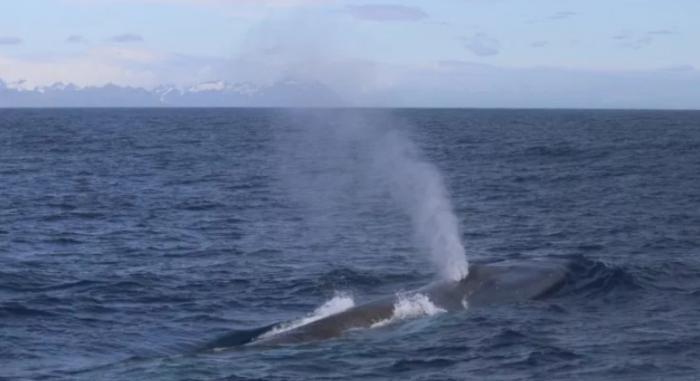More than half a century after almost completely disappearing, Antarctic blue whales are returning in large numbers to the waters surrounding South Georgia in the South Pacific, according to foreign media new Atlas. An international team led by Susannah Calderan of the Scottish Marine Science Association (SAMS) has collected 58 sightings of giant cetaceans and acoustic detections of their presence.

One of the greatest tragedies of the 19th and 20th centuries was the near extinction of blue whale populations in the world's oceans. The blue whale, which was once nearly impossible to kill, is estimated to have captured 382595 largest creature ever inhabited the planet thanks to the invention of motorboats and the firing of harpoon guns with spiked steel forks, although this number may be higher due to unreliable Soviet statistics on its catch.
In 1967, the International Whaling Commission banned the killing of blue whales altogether. By then, their number had been reduced to 10,000 to 25,000 heads. In the vicinity of the British territory of South Georgia, the local blue whale population has almost completely disappeared, with only one sighting between 1998 and 2018.
A survey conducted this year shows that blue whales are returning to South Georgia. In addition to looking for whales directly, the study also used listening devices to detect acoustic signals from the whales' loud, low-frequency calls, which they can send over long distances. In addition, the research team collected eyewitness reports of seafarers and tourist ship passengers.
The scientists also studied the photos and finalized 41 photos of blue whales, which were taken between 2011 and 2020, but none of them matched the 417 blue whales in the Antarctic blue whale photography catalog.
"The persistent absence of the South Georgia blue whale has been seen as an iconic example of a population emerging locally to the point where it cannot be recovered," Calderan said. "But over the course of our work in South Georgia over the past few years, we've become quite optimistic about the number of blue whales we see and hear on the island, which has only recently happened." The situation has been particularly exciting this year, with the number of blue whales seen exceeding our expectations. ”
"We don't quite know why it took the blue whale so long to come back. It may be that many of these blue whales were killed in South Georgia, so much so that people lost their cultural memory of thinking the area was a feeding ground that has only now been rediscovered. ”
The study was published in Endangered Species Research.